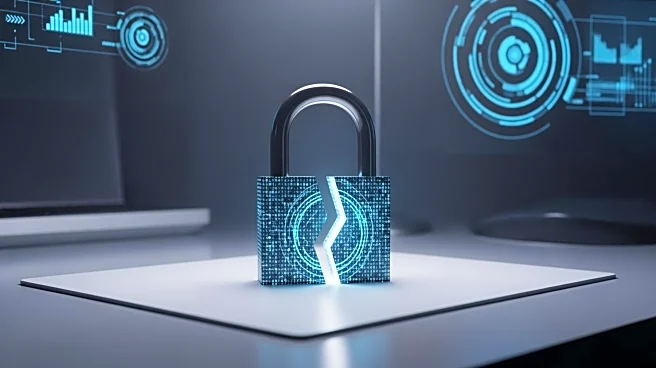What's Happening?
A recent CNET survey reveals that less than half of Americans use a VPN, despite the security risks associated with unprotected internet browsing. VPNs provide a layer of privacy by encrypting online traffic and hiding users' IP addresses, protecting
against data collection by ISPs and cybercriminals. Fred Kwong, VP and Chief Information Security Officer at DeVry University, emphasizes the importance of VPNs for cyber hygiene, especially when using public Wi-Fi networks. VPNs can also help bypass geographic restrictions on streaming content, although streaming services often attempt to block VPNs. The article highlights the ongoing battle between VPN providers and streaming services, as well as the potential for VPNs to prevent online tracking and profiling.
Why It's Important?
The widespread use of the internet for personal and professional activities makes cybersecurity a critical concern. VPNs offer a solution to protect user privacy and prevent unauthorized data collection, which is increasingly relevant as ISPs and advertisers track online behavior. The discussion around VPNs also touches on the broader issue of digital rights and access to content, as geographic restrictions can limit users' ability to view certain media. This has implications for consumer choice and the global distribution of digital content. Additionally, the article underscores the importance of cybersecurity measures in safeguarding sensitive information from cyber threats.
What's Next?
As awareness of online privacy issues grows, more users may consider adopting VPNs to protect their digital activities. This could lead to increased demand for VPN services and potentially influence the development of more robust cybersecurity solutions. Streaming services may continue to refine their policies regarding VPN use, balancing content licensing agreements with consumer privacy concerns. The ongoing dialogue about digital privacy may also prompt legislative action to address data collection practices by ISPs and other entities.
Beyond the Headlines
The use of VPNs raises ethical questions about the balance between privacy and access to information. As digital surveillance becomes more prevalent, the debate over individual rights versus corporate interests may intensify. VPNs also highlight the cultural shift towards prioritizing privacy in the digital age, reflecting broader societal concerns about data security and personal freedom.
















